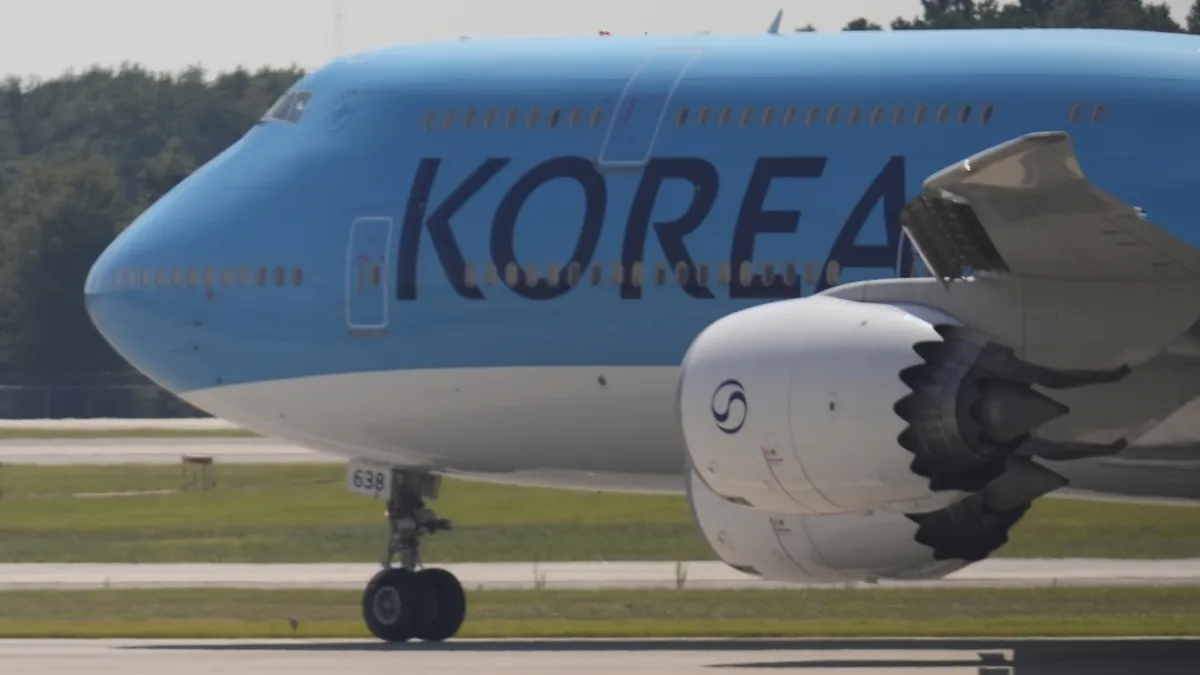
On Thursday, a plane carrying over 300 South Korean workers departed from Atlanta, bound for South Korea. This flight comes in the wake of a significant immigration raid that took place at a battery factory in Georgia the previous week. The workers, who had been detained during the raid, were transported by bus from a detention center located in southeast Georgia to Atlanta earlier that day, with their flight anticipated to arrive in South Korea by Friday afternoon.
According to South Korea's Foreign Ministry, the group of detainees released by U.S. authorities consisted of 316 Koreans, 10 Chinese nationals, three Japanese nationals, and one Indonesian. This incident is part of a larger operation where approximately 475 individuals were detained during the raid at the battery factory, which is situated on the expansive campus of Hyundai's auto plant near Savannah, Georgia. The workers had been held at an immigration detention center in Folkston, roughly 285 miles (460 kilometers) southeast of Atlanta.
South Korean President Lee Jae Myung addressed the situation on Thursday, urging for reforms in the United States' visa system. He expressed concerns that without these improvements, Korean companies might be reluctant to pursue new investments in the U.S. During a press conference, Lee revealed that there had been discussions between Korean and U.S. officials regarding the treatment of the detainees during their transport to Atlanta, particularly concerning the use of handcuffs, which the Koreans opposed strongly.
President Lee mentioned that there was also a debate about whether the detainees would be departing under voluntary departure or deportation. During these discussions, it was reported that U.S. officials began returning the detainees' personal belongings. However, the process was abruptly halted due to instructions from the White House, as President Trump had directed that the detainees should be allowed to return home freely. Those who chose to remain in the U.S. could do so without any pressure.
A South Korean Foreign Ministry official, who spoke anonymously, indicated that President Trump paused the deportation process to consult South Korea on whether the detainees should stay to assist with training U.S. workers or return home. Ultimately, one South Korean national opted to remain in the U.S. due to family ties.
This incident stands out within the context of the Trump administration's broader immigration enforcement agenda, which has included numerous workplace raids. However, this particular raid was notable for its scale and the fact that it targeted a manufacturing site that has been highlighted as Georgia's largest economic development project. The $7.6 billion Hyundai plant has been operational for a year and employs about 1,200 individuals.
In a statement made on Wednesday, Governor Brian Kemp's office emphasized the strong relationship between Georgia and the Republic of Korea, highlighting partnerships with companies like Hyundai that date back 40 years to the establishment of Georgia's trade office in Seoul. A spokesperson for the governor's office expressed gratitude towards Korean partners for their commitment to adhere to all state and federal laws. They underscored their dedication to ensuring that this unfortunate incident does not undermine the decades of mutually beneficial partnerships formed over the years.
The detention of South Korean nationals during this raid was particularly unusual, as they are not commonly involved in immigration enforcement actions. Footage released by U.S. Immigration and Customs Enforcement (ICE) showed federal agents directing workers to line up outside the factory, with some detainees being ordered to put their hands against a bus while being frisked. Others were seen with plastic ties around their wrists as they boarded a bus designated for inmate transfer in Georgia.